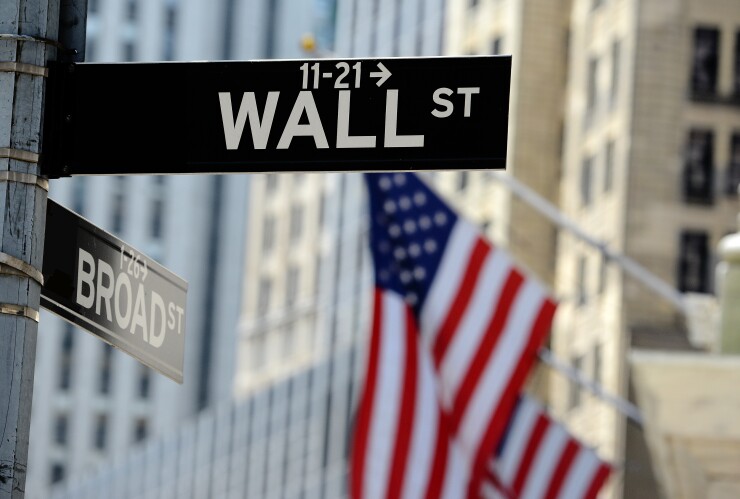
(Bloomberg Markets) --If you asked the smartest people in the room late last year what was about to happen inside the US banking system, exactly none would've predicted the chaos to come. So our panel of experts is taking a distinct risk in trying to answer an even harder question. Their responses have been edited for length and clarity.
Kim Posnett, Global head of technology, media and telecommunications banking at Goldman Sachs Group Inc.
Machine learning and artificial intelligence will transform the financial-services industry. Business executives, investors and advisers will be able to understand and interpret massive data sets very quickly and easily, allowing them to make much more informed, efficient and better decisions across M&A, financings, asset allocation and much more. There will be a dramatic change in the usage and impact of predictive analytics, which we are already starting to see, but have only just scratched the surface in terms of possibilities.
Mary Jo White, Partner at Debevoise & Plimpton and former chair of the US Securities and Exchange Commission
AI comes to Wall Street and never leaves. AI-enabled anti-money-laundering tools will be autonomous and interact directly with regulators, detecting unlawful transactions and automatically reporting them to the SEC's AI market surveillance bot, which will automatically respond.
Nathalie Molina Niño, Co-founder and chief strategy officer of Known Holdings LLC
Capital, globally, is concentrating in surprising places. Private fortunes that dwarf public money are moving into the hands of younger, more conscientious hands that increasingly reject the extractive capitalism of their fathers and grandfathers.
Aren LeeKong, Vice chairman of global credit and head of direct lending at Carlyle Group Inc.
I remember when I first walked onto a trading floor in the late 1990s and saw a sea of bodies. Within five years, that number was cut by a third by the tech bubble bursting, 9/11, a slowing economy and the rapid evolution of technology. I see similarities today. As advances in artificial intelligence take hold, previously highly valued and differentiated tasks will be executed with amazing efficiency and timing gains by AI. Firms will be able to rely on a smaller group of executives, and they will need to be more creative about how they differentiate themselves to stay relevant. Diversity of thought, perspective, experience and background will not be nice to have—it will be an essential part of success as these changes take hold.
Kelly Ifill, Founder and chief executive officer of digital banking and networking platform Guava
Given recent events and subsequent volatility across the financial sector, small businesses are rethinking their banking partnerships. Because of this once-in-a-generation response, I believe that neobanks will step in now to become the new community banks, providing a more personalized experience for customers and playing a pivotal role in providing greater access to capital, guidance and advisory.
Joyce Chang, Chair of global research at JPMorgan Chase & Co.
Digitization, decentralized finance, the metaverse and AI will redefine the role of the centuries-old transactional middleman. The technology is progressing faster than expected and will be critical to future success across risk, prospecting, marketing, customer experience and fraud prevention. As much as AI can empower our capabilities, we also have to prevent unintended consequences through misuse.
Tom Glocer, Lead director at Morgan Stanley and chairman of financial technology startup Capitolis Inc.
The change that needs to occur in the US financial system is a fundamental rethink of how we balance the maturity transformation and credit underwriting function of banks with ensuring the availability of demand deposits. The change that is more likely to occur over the next five years is a further tightening of capital standards, including the adoption of Basel end-state capital requirements [the final minimum capital rules agreed upon by the Basel Committee on Banking Supervision].
Lisa Donner, Executive director of Americans for Financial Reform
Wall Street will face renewed scrutiny from the American public about the privileges it enjoys thanks to a political system that for far too long went along with what the industry wanted, no matter the costs to the rest of us.
Robert Reich, Professor at the University of California at Berkeley and former secretary of the US Department of Labor
Five years from now, Wall Street will have ceased to exist. Trading will have become so decentralized and global, and so dominated by AI, that no one will refer to the Street except in historic (and not entirely favorable) terms.
--With assistance from Sridhar Natarajan.





